 |
|
| You are here: Index > Surveys of Secondary Worlds > Kamen Rider Geats | |
Reviewing Kamen Rider Geats (2022)[written on 05-09-2025]My tokusatsu spree has been a methodical one. Just like everything in media there are categories based upon eras, and these eras often determine the common characteristics and tropes of the genre in that stage. In Japan, just about all of their television can be sorted into three eras: the Showa era from 1926 to 1989, the Heisei era from 1989 to 2019, and the current Reiwa era. I decided to take this into account when approaching tokusatsu, and so I set out to watch one show from each era. For the Showa era I chose Kamen Rider Black, for my Heisei Rider I went for Kamen Rider W, and for the final era I picked up Kamen Rider Geats. The Reiwa era has been an interesting era for tokusatsu and particularly Kamen Rider. The first Reiwa Rider, Kamen Rider Zero-One, was hit by pandemic debacles and had a rough start. The subsequent series, Saber and Revice, weren't all that well received, their stories fairly weak amongst a roster of great dramas. It didn't help that Reiwa is more willing to use more CGI in their film techniques than the previous eras; not that the suit action and pyrotechnics are gone, as I'll elaborate on later, but the shift is noticeable. These concerns, however, have not stopped people from praising the arguably most popular Reiwa Rider thus far: the 2022 battle-royale Kamen Rider Geats. As a fairly new fan of tokusatsu, there were a lot of aspects to Geats that were unfamiliar to me compared to the rest. While Black and W focused on episodic or two-part stories in a simple overarching narrative, Geats has a more modern formula of multi-episode arcs that all work as part of a complex story. While Black is the sole protagonist, and W has a secondary Rider in the form of Accel, there are a large quantity of original Kamen Riders present in Geats as part of a constant battle-royale tournament. Despite these differences, which cooled my enthusiasm somewhat at the start, I am pleased to say Geats earned my investment bit by bit until I now consider on par if not superior in some aspects to the other Rider shows I've watched. 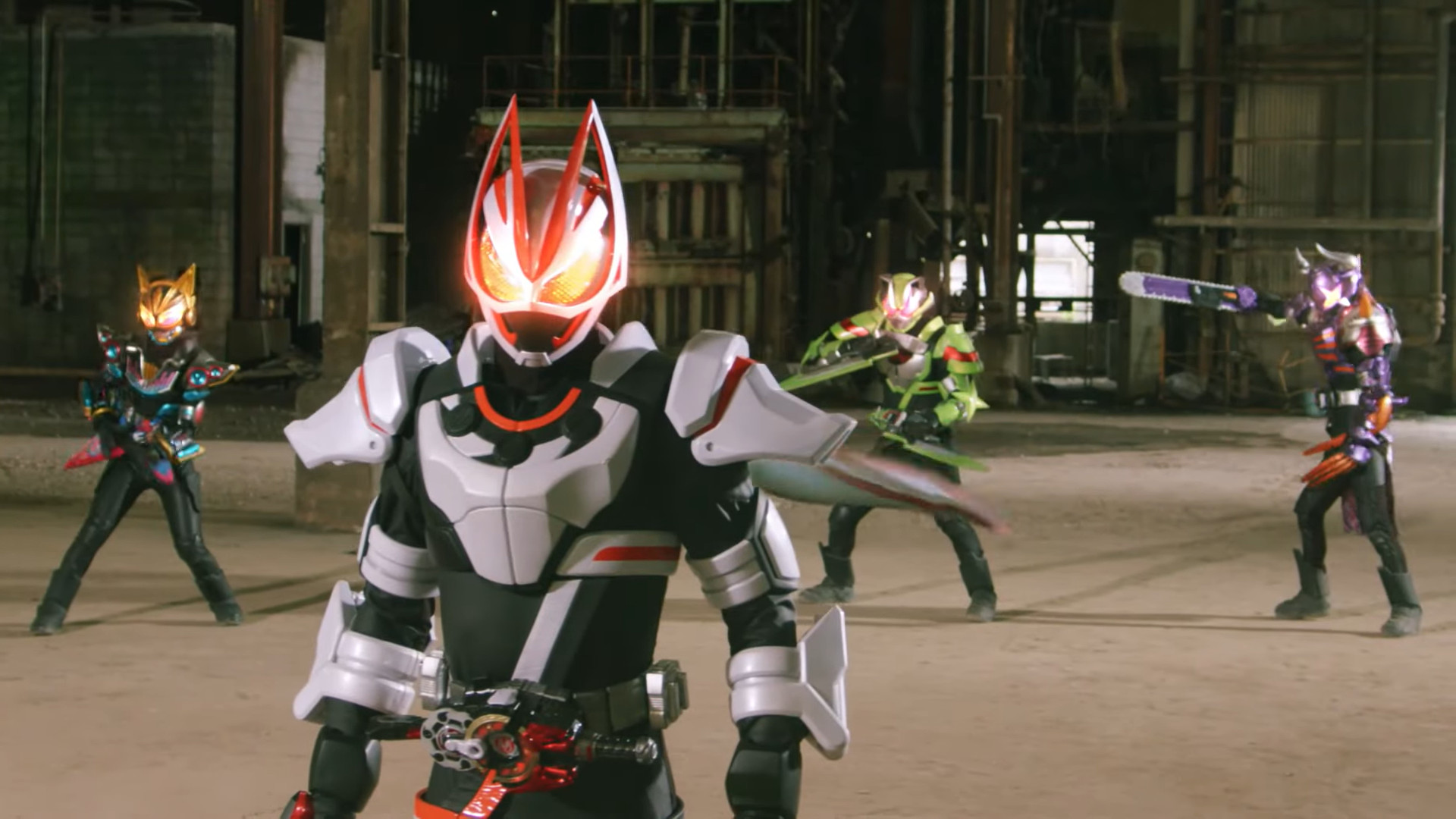
Personal Scorethis criteria uses the DecentFilms rating formula.Letter-Grade Recommendability: A It should be noted that Geats is not the first Rider show to feature a battle-royale format — that credit goes to Kamen Rider Ryuki 20 years earlier. What is unique here is the gameshow/video-game inspiration here, reminiscent of titles like Fortnite and Squid Game. A villain force known as the Jyamato are appearing throughout Japan, and the Kamen Riders earn points by defeating them and completing secondary objectives; in that way it does preserve the heroic aspect of the franchise while also giving this strange new approach. The competition, known as the Desire Grand Prix, is run by a mysterious organization, and the winner is granted one wish of his choosing. There is a high incentive to fight and win, each Rider having their wish written down before the games even begin to motivate them through the games. With a premise like that, it only makes sense that Kamen Rider Geats is incredibly character-centric. Every Rider has a wish they want granted, and what they're willing to do in pursuit of that desire is the core of the show. There is quite a large cast at play here, such as the naive and friendly Sakura Keiwa, the empathetic and lonely Neon Kurawa, and the hard-headed brute Michinaga Azuma, and they each have their specific motivations at play; Keiwa wants world peace, Neon wants true love, and Michinaga wants to tear down the DGP itself. These three are the biggest players and they are all well characterized, but being secondary Riders put them one rung beneath the star of the show. 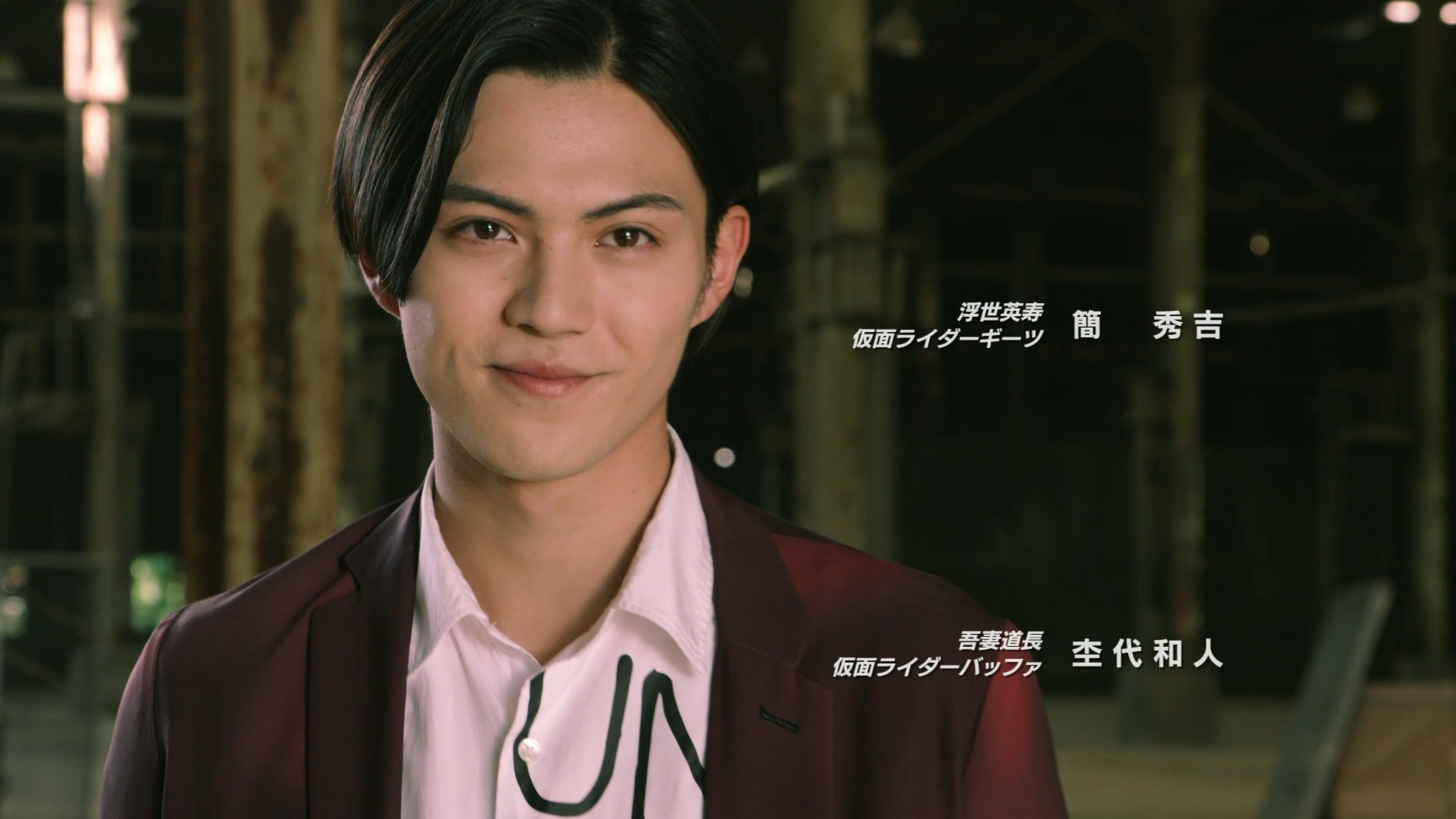
Ace Ukiyo is the titular Geats, an undisputed champion of the DGP and seemingly invincible. He's very intelligent, frequently out-scheming the competition, and he has the strength to back it up with a dash of luck. He knows it, too, and the smug attitude he carries for the majority of the show is one I can certainly see being unpleasant to some. He fits the same archetype as the main Riders of Kabuto and Decade, his agency the primary driver of the plot and leaving an impression upon everyone he meets. What I can say is that the series characterizes him in time to avoid leaving him static, and this does make him increasingly likeable rather than annoying. His motivations and past are so closely tied to the DGP that he earns his status as the main protagonist of the story, and I found myself rooting for him despite his cockiness. As one would expect from a premise built around wishes, the series' themes concern human desire. What would you do to achieve your dreams? What is the healthy limit to ambition? Not everyone has a noble wish, but the ones that do are often tested in what they're willing to do to win. Ace demonstrates this very early on, and he gets a reputation for being a trickster, but through that he sets a precedent for initiative: you want your wish to come true? You may have to trample the wishes of others to get it; such is life. It's a good theme, and it is handled very well here. With that direction in mind, I found the general plot and the respective arcs to be pretty good. There are seven arcs in total, coinciding with seven consecutive seasons of the DGP, and there's always some new gimmick or element to keep the games fresh. Whether it's a city-wide game of football or a Mafia-style imposter game, there's never a dull environment. And as the secrets of the DGP begin to unravel, the intrigue begins to take a crucial roll and even influence the games themselves rather than compete with them. This puts stakes in every aspect of the series, whether it be the individual games or the personal lives outside. I found the development of each Rider outside of their battles to be quite engaging as they deal with alliances and carving out their own paths for victory. 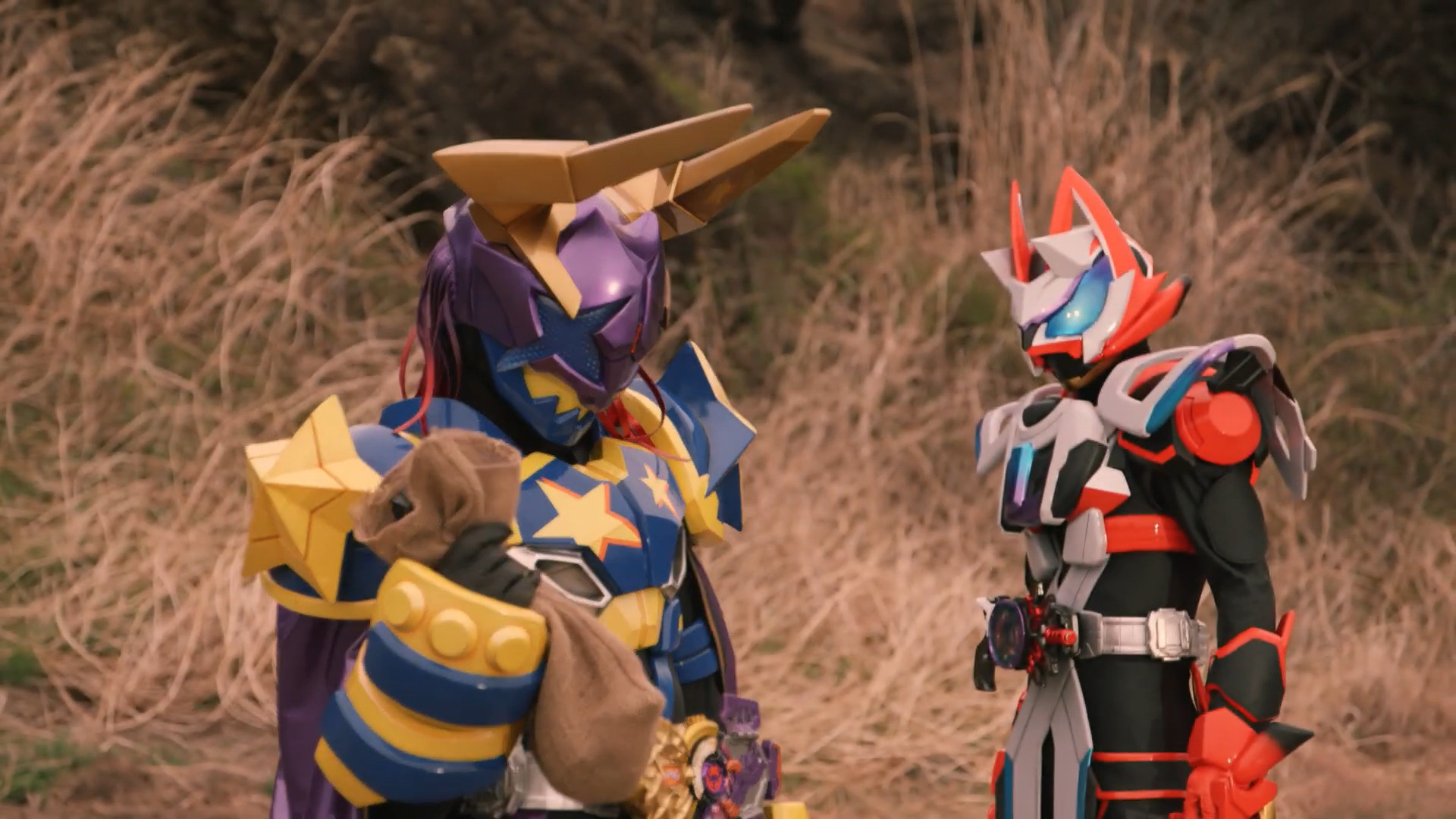
The aforementioned theme of desire also gets some development as the plot progresses. Everyone's wish tramples over the wishes of others; but does it have to be? There is an argument against individuality and independence here. Working to achieve one's dreams in the wake of a leader's ambition is a theme that is explored in the later arcs, as Ace goes from a champion to something much more. There are religious parallels on display here, particularly of the Shinto brand for obvious reasons, but it leaves some interesting food for thought on leadership. Out of the Rider shows I've watched thus far, Geats by far does the most work with its theme and the facets of it, and I really enjoyed how that was explored. Another thing I enjoyed and would be remiss to leave out is the action. There is some very fun suit-action on display here, thanks in large part to the game-like powerups that everyone sports as part of a base form. Riders often swap out parts of their costume in the middle of a fight to gain modular advantages, and this makes every fight visually interesting as the nature of the action is constantly prone to change. Some scenes are borderline anime in their speed and intensity, and this is where the aforementioned CGI comes into play; some scenes are almost entirely computer-generated and it was very plain to see. While I did not hate said CGI, as it was clear they really could not have tackled the specific sequences any other way, they are certainly the lower level of production quality. Fortunately these moments are few, and the fun stuff happening amidst them prevents it from disrupting the flow of the scenes. I really liked how action-focused Geats is, moreso than the others I've seen, and it's what I'm looking forward to most in the Blu-ray. 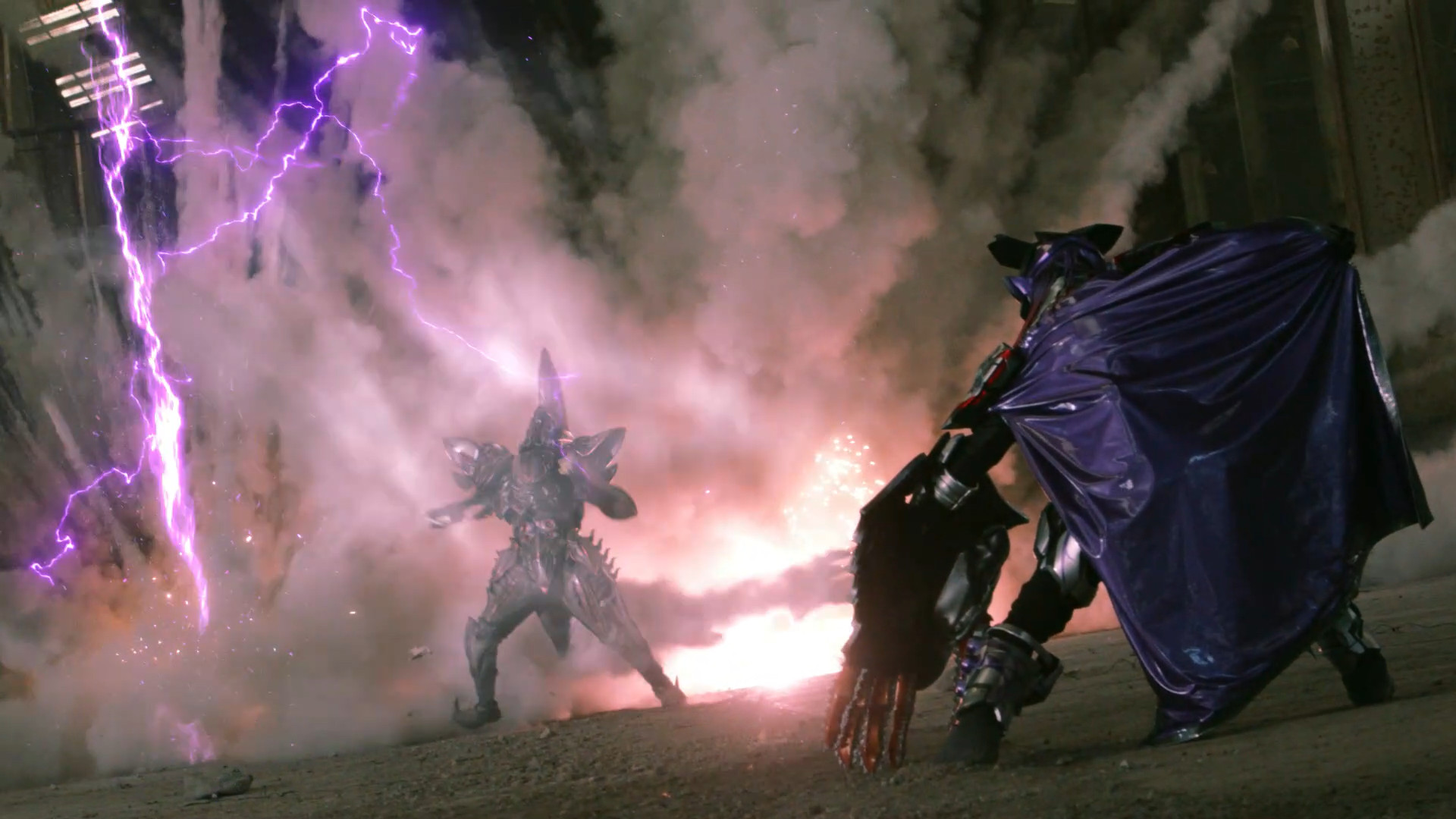
For physical copy enjoyers, there is good news for you. Geats received a box set for the whole series in Blu-ray, and I intend to update this review with a brief thought on its quality. It does not, from what I see, have the bonus movies, which is a little disappointing. The supplementary material is not a necessary part of the narrative like I would say that Begins Night and Gaia Memories A to Z were to Kamen Rider W. For Geats you have the Extra shorts, about the length of a standard episode, that work to flesh out a few characters in more backstory-centric stories, and that is fine. Then you have four movies, and these are okay: I did not watch Geats x Revice, I did like Four Aces and the Black Fox quite a bit, the Geats x Gotchard movie was flawed but okay, and Jyamoto Awaking felt like a second finale that is fun but unnecessary. None of this stuff is key to the central narrative, though they are teased in the show, so I would not worry too much about checking these out unless you really want more Geats in your life, in which case you should consult this watch order:
Episode 1-15 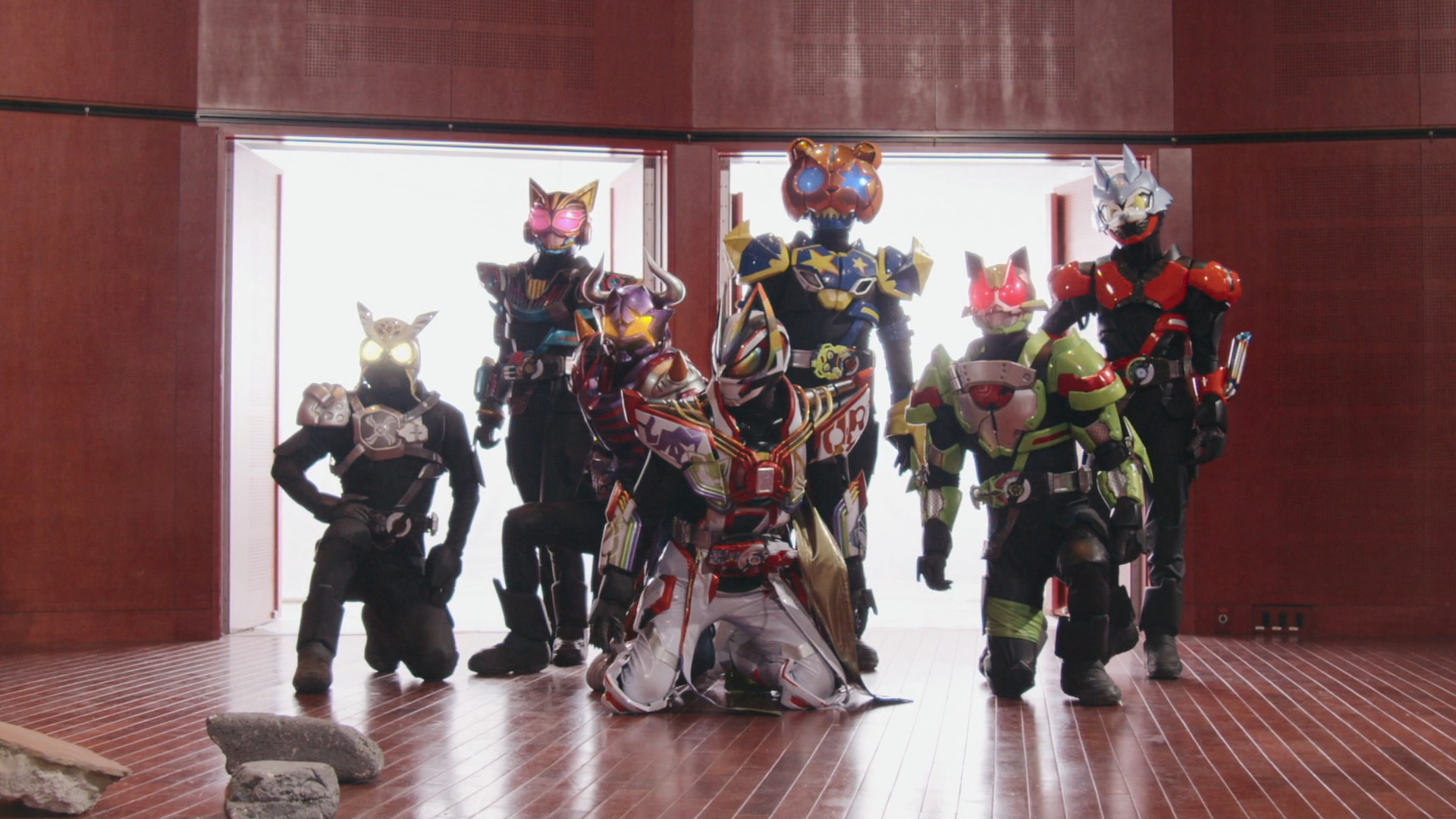
When all is said and done, I had a great time with Kamen Rider Geats. It manages to tackle a large cast and a premise alongside complex themes in the single season where most shows would flame out. Clocking in at 49 episodes, this is a great season of Kamen Rider to check out if you're a newcomer to the franchise or just looking for some more tokusatsu drama. |
|
Exodite.org | 2023-2024





|
|